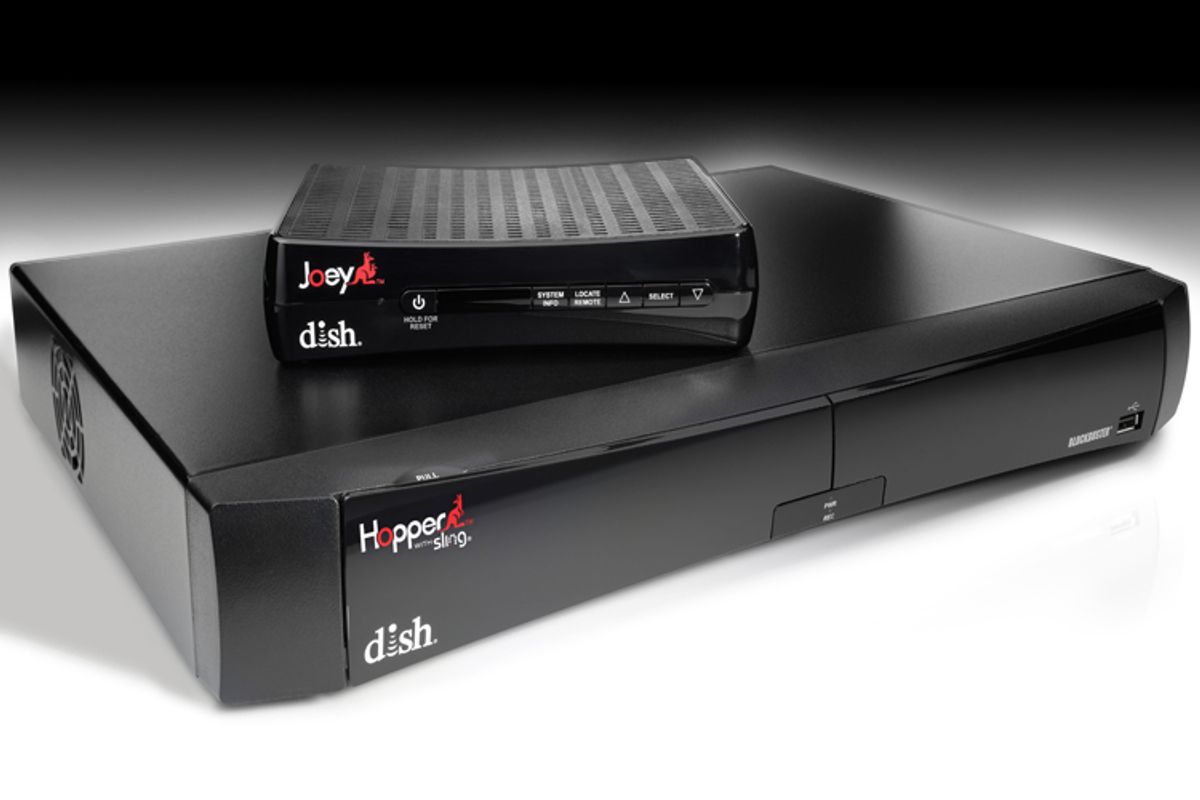In a decision that could have long-term ramifications for TV watchers, on Wednesday the 9th Circuit Court of Appeals affirmed a lower court's ruling refusing to grant Fox Broadcasting's request for an injunction against the use of Dish Network's Dish Hopper set-top box.
The Dish Hopper last appeared in Salon in January, when CBS forced its subsidiary, the tech news network CNET, to rescind its vote awarding the souped-up DVR its "Best of CES winner" at the Consumer Electronics Show. CBS, along with Fox and two other television networks, believe that Dish Hopper's ability to record huge swathes of prime-time programming and then automatically enable viewers to skip ads when watching programs breaks both copyright law and the terms of Dish's contracts with the TV networks.
The appellate court's opinion acknowledged that Fox's argument that Dish had breached its contract was "close" -- but apparently not close enough. Relying on precedents dating all the way back to the landmark Sony vs. Betamax case, the court decided that Fox had not demonstrated that it was likely to win its case on the merits. Thus: no injunction.
James Grimmelman, a professor of law at the University of Maryland who specializes in intellectual property law, called the decision "fairly significant."
"It provides a firmer legal footing for technologies people already assume are legal, like DVRs," Grimmelman told Salon. "But it also does two things that I expect lots of Silicon Valley companies to be paying close attention to. First, it says that ad-skipping doesn't count in the fair use analysis if the consumer's purpose is otherwise legal (e.g., time-shifting). So this is a green light for other consumer-controlled ad-skipping and ad-blocking technologies. That could be important on the Web. And second, it blessed mass recording: Consumers can profligately record media they have access to, rather than needing to pick and choose each specific program."
This is surely not the last we've heard on this matter. Automatically enabling ad-skipping strikes at the heart of the traditional network TV business model. The networks will keep fighting.
Then again, in a world where we're all binge-watching "Orange is the New Black" on Netflix, it doesn't take long for the "traditional" to become hopelessly archaic.



Shares